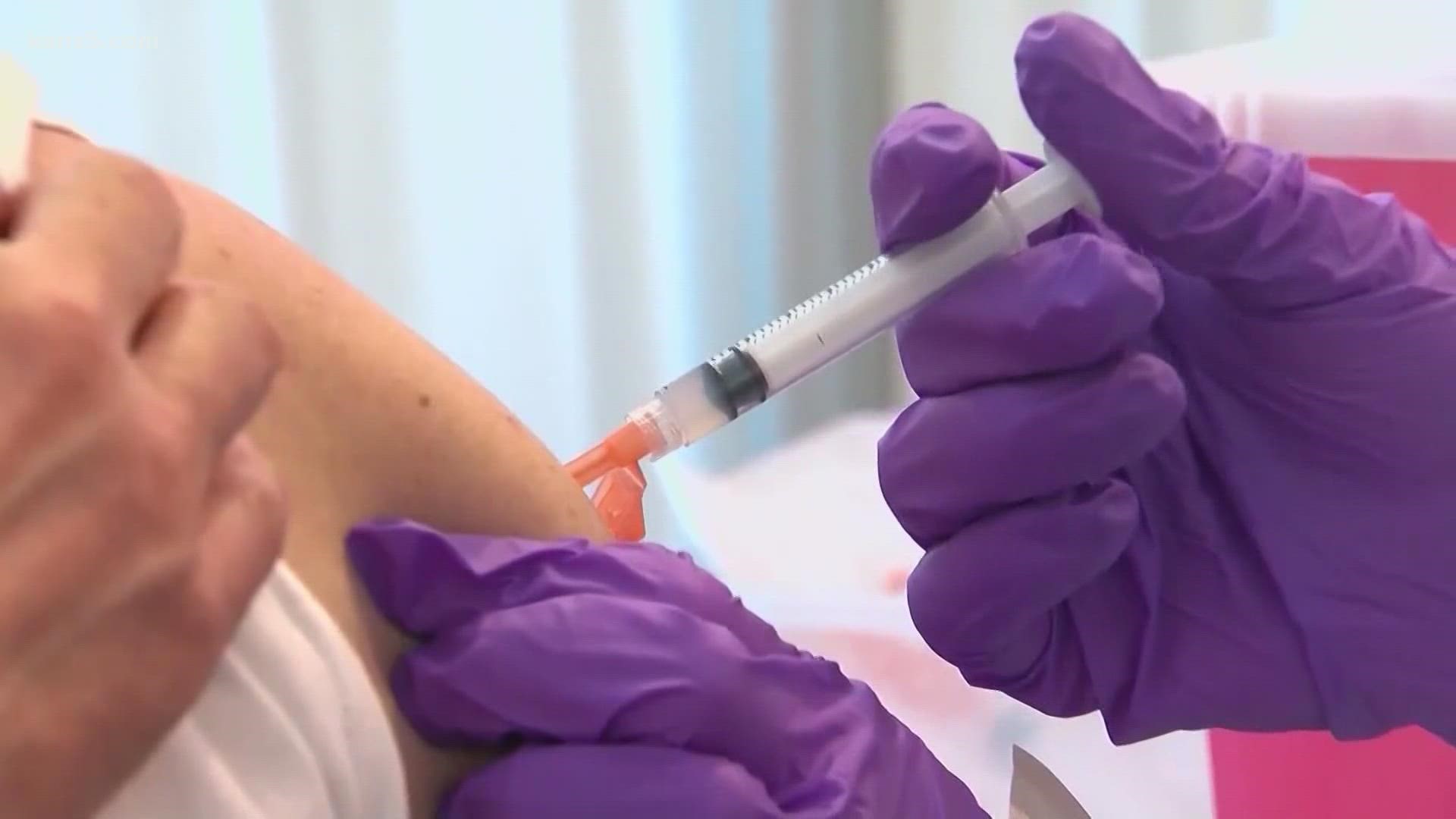SAN ANTONIO — Centers for Disease Control data indicates expectant mothers who catch COVID-19 are more likely to experience complications with their pregnancies.
But just over 25% of pregnant women have been vaccinated as of this week, compared to about 60% of women between the ages 18 and 49 who are not carrying a child.
Dr. Anita Kurian, assistant Metro Health director, says the disparity is evidence of an "infodemic."
"I lay the blame on social media," she said. "Information travels fast, whether it's good information or bad information."
Fertility concerns are rooted in an early pandemic paper published by a German doctor who had been skeptical of vaccine efficacy during prior pandemics.
He recognized a spike protein on the SARS-COV-2 virus itself that appeared similar to a protein present during placental development.
"The doctor thought that the vaccine might make antibodies against that protein and could affect placentas and pregnancies," Dr. Shad Deering, a maternal fetal medicine specialist at The Children’s Hospital of San Antonio, writes in a soon-to-be-published blog post. "But COVID-19 vaccines don’t even cause that protein to be produced, and there have been studies of placentas of women who received the vaccine and there are no differences between them and women who didn’t get the vaccine."
Another doctor compared the similarities between the placental protein and the spike protein to two telephone numbers that share a single, common digit.
Northwestern University research shows that vaccinated pregnant women are as healthy as uninfected women who are not vaccinated.
There is also ample evidence that vaccinated mothers can pass COVID-19 antibodies on to their children, who may not be eligible for a vaccine for some time.
New misinformation is spreading on Twitter about male fertility, as well.
"There is no evidence at this time suggesting that COVID-19 vaccines cause fertility issues in people," Kurian said, addressing unfounded concerns for men and women.
As is the case for expecting mothers, a COVID-19 infection can impact male reproductive health.

